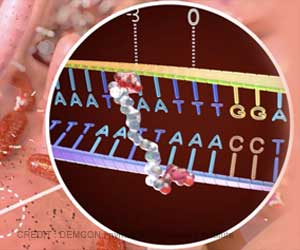New research demonstrated the link between antibiotic use and colon cancer risk, which emphasizes the importance of cancer screening in routine examination.

The present study uses data on 40,000 patients from the Swedish Colorectal Cancer Registry from the period 2010–2016. These have been compared to a matched control group of 200,000 cancer-free individuals drawn from the Swedish population at large.
Data on the individuals’ antibiotic use was collected from the Swedish Prescribed Drug Register for the period 2005–2016.
In order to understand how antibiotics increase the risk, researchers also studied a non-antibiotic bactericidal drug used against urinary infections that does not affect the microbiome. There was no difference in the frequency of colon cancer in those who used this drug.
Researchers also found that both women and men who took antibiotics for over six months ran a 17 per cent greater risk of developing cancer in the ascending colon, the first part of the colon to be reached by food after the small intestine, than those who were not prescribed any antibiotics.
The increase in risk is moderate and the effect on the absolute risk to the individual is fairly small. Sweden is also in the process of introducing routine screening for colorectal cancer.
Advertisement
Advertisement















